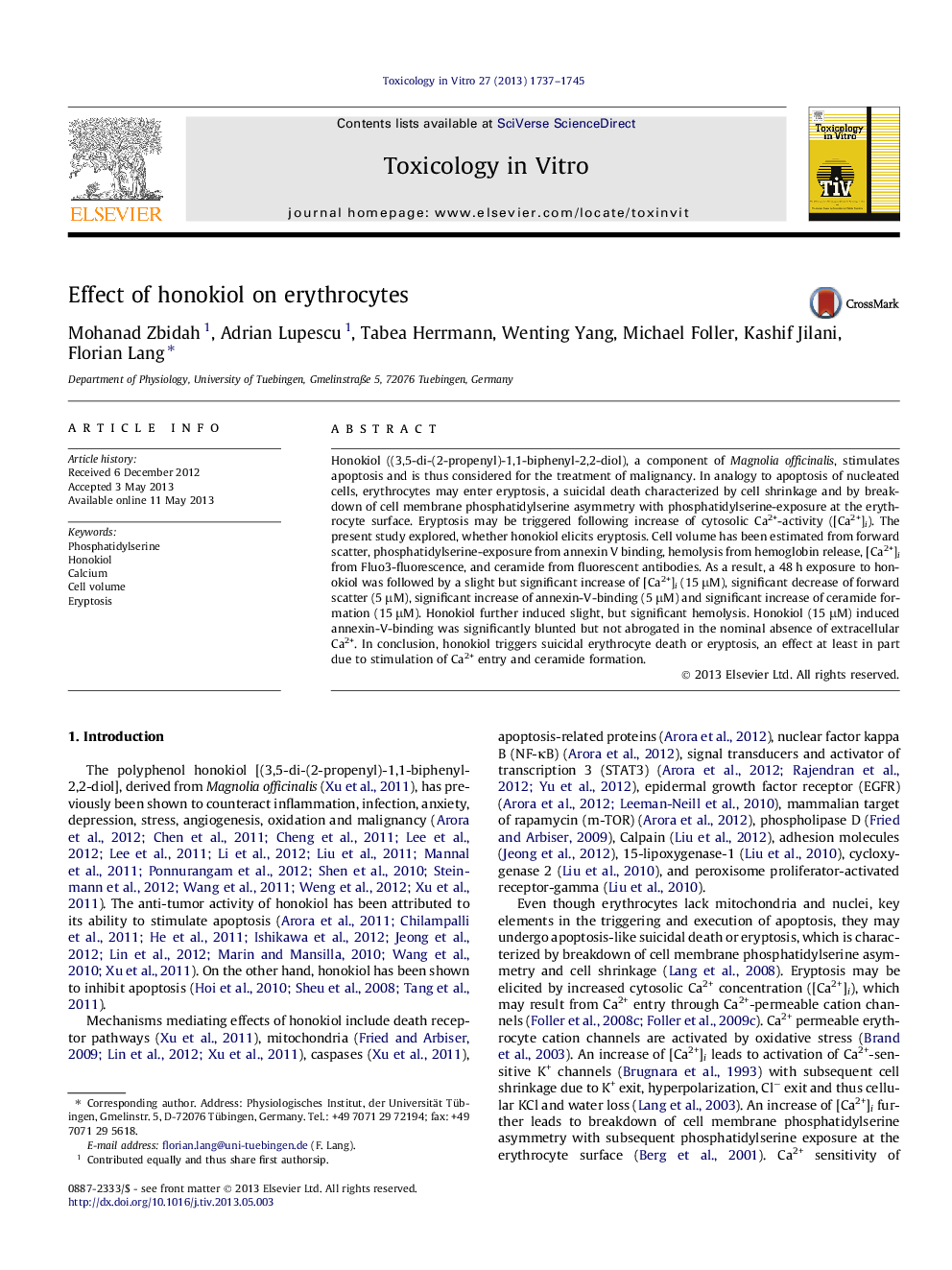| کد مقاله | کد نشریه | سال انتشار | مقاله انگلیسی | نسخه تمام متن |
|---|---|---|---|---|
| 5861733 | 1133765 | 2013 | 9 صفحه PDF | دانلود رایگان |
عنوان انگلیسی مقاله ISI
Effect of honokiol on erythrocytes
ترجمه فارسی عنوان
اثر هوکیکول بر اریتروسیت ها
دانلود مقاله + سفارش ترجمه
دانلود مقاله ISI انگلیسی
رایگان برای ایرانیان
کلمات کلیدی
موضوعات مرتبط
علوم زیستی و بیوفناوری
علوم محیط زیست
بهداشت، سم شناسی و جهش زایی
چکیده انگلیسی
Honokiol ((3,5-di-(2-propenyl)-1,1-biphenyl-2,2-diol), a component of Magnolia officinalis, stimulates apoptosis and is thus considered for the treatment of malignancy. In analogy to apoptosis of nucleated cells, erythrocytes may enter eryptosis, a suicidal death characterized by cell shrinkage and by breakdown of cell membrane phosphatidylserine asymmetry with phosphatidylserine-exposure at the erythrocyte surface. Eryptosis may be triggered following increase of cytosolic Ca2+-activity ([Ca2+]i). The present study explored, whether honokiol elicits eryptosis. Cell volume has been estimated from forward scatter, phosphatidylserine-exposure from annexin V binding, hemolysis from hemoglobin release, [Ca2+]i from Fluo3-fluorescence, and ceramide from fluorescent antibodies. As a result, a 48 h exposure to honokiol was followed by a slight but significant increase of [Ca2+]i (15 μM), significant decrease of forward scatter (5 μM), significant increase of annexin-V-binding (5 μM) and significant increase of ceramide formation (15 μM). Honokiol further induced slight, but significant hemolysis. Honokiol (15 μM) induced annexin-V-binding was significantly blunted but not abrogated in the nominal absence of extracellular Ca2+. In conclusion, honokiol triggers suicidal erythrocyte death or eryptosis, an effect at least in part due to stimulation of Ca2+ entry and ceramide formation.
ناشر
Database: Elsevier - ScienceDirect (ساینس دایرکت)
Journal: Toxicology in Vitro - Volume 27, Issue 6, September 2013, Pages 1737-1745
Journal: Toxicology in Vitro - Volume 27, Issue 6, September 2013, Pages 1737-1745
نویسندگان
Mohanad Zbidah, Adrian Lupescu, Tabea Herrmann, Wenting Yang, Michael Foller, Kashif Jilani, Florian Lang,
